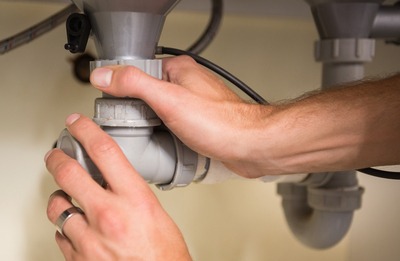Understanding the Crucial Role of Drain Cleaning in a Healthy Plumbing System

Introduction
A smoothly functioning plumbing system is essential for the comfort and convenience of any home. Among the various components that keep this system running, drains play a vital role in directing wastewater away from your property. However, over time, these drains can become clogged with debris, leading to a host of problems that can disrupt your daily life. Regular drain cleaning is crucial to maintaining a healthy plumbing system, preventing blockages, and ensuring the efficient flow of water.
This article will explore the importance of drain cleaning, the consequences of neglecting this essential maintenance task, and tips for keeping your drains clear and functioning properly.
The Importance of Regular Drain Cleaning
Drains are the unsung heroes of your plumbing system, quietly carrying away water and waste from your sinks, showers, and appliances. Over time, however, they can accumulate various materials that cause blockages and slow down water flow.
- Preventing Blockages
Blockages are one of the most common plumbing issues homeowners face. Hair, grease, soap scum, food particles, and other debris can build up in your drains over time, eventually leading to partial or complete blockages. These blockages not only slow down water flow but can also cause backups, resulting in standing water in sinks, tubs, or showers.- Kitchen Drains: In the kitchen, food scraps, grease, and oils are the primary culprits behind clogged drains. Even if you’re careful about what goes down the drain, small particles can accumulate over time, forming stubborn clogs that are difficult to remove without professional intervention.
- Bathroom Drains: Hair and soap residue are the main offenders in bathroom drains. These materials can combine to create tough clogs that restrict water flow and cause slow-draining sinks and tubs.
- Avoiding Unpleasant Odors
Clogged drains are often accompanied by unpleasant odors caused by the buildup of organic materials. As these materials decompose, they release foul smells that can permeate your home. Regular drain cleaning helps eliminate these odors by removing the debris before it has a chance to break down and produce bad smells.- Odor-Causing Buildup: In kitchen drains, the combination of food particles and grease can create a breeding ground for bacteria, leading to foul odors. In bathroom drains, hair and soap scum can trap water and organic matter, resulting in similar problems.
- Preventing Water Damage
Blocked drains can lead to water backing up into your sinks, tubs, or even onto your floors. This standing water can cause significant damage to your home, including water-stained walls, warped flooring, and mold growth. By keeping your drains clear, you reduce the risk of water damage and protect your home’s structural integrity.- Flooding Risk: In severe cases, a completely blocked drain can cause flooding, especially if it’s connected to your basement or other low-lying areas. This type of water damage can be expensive to repair and may also lead to long-term issues like mold and mildew.
The Consequences of Neglecting Drain Cleaning
While it’s easy to overlook your drains when they’re working properly, neglecting regular maintenance can lead to serious and costly issues down the line.
- Increased Repair Costs
A minor blockage that could have been easily removed with routine cleaning can develop into a major problem if left unchecked. Severe clogs may require extensive repairs, including pipe replacement or even sewer line excavation. These repairs can be costly and disruptive to your daily life.- Emergency Repairs: Waiting until a drain is fully blocked often necessitates emergency plumbing services, which can be more expensive than routine maintenance. Regular cleaning helps avoid these unexpected costs by addressing issues before they escalate.
- Reduced Plumbing Efficiency
Clogged drains don’t just cause backups—they can also reduce the overall efficiency of your plumbing system. Water pressure may decrease, appliances like dishwashers and washing machines may not function properly, and you may notice slow drainage in multiple fixtures.- Appliance Strain: When drains are clogged, appliances that rely on proper drainage, such as dishwashers and washing machines, have to work harder to complete their cycles. This added strain can shorten the lifespan of these appliances and lead to more frequent repairs or replacements.
- Health Hazards
Standing water from clogged drains can create an ideal environment for mold, mildew, and bacteria to grow. These microorganisms can pose serious health risks, particularly for individuals with allergies, asthma, or weakened immune systems. Additionally, sewage backups caused by severe clogs can expose your home to harmful pathogens.- Mold and Mildew: Mold and mildew thrive in damp environments, such as the areas around clogged drains. These fungi can release spores into the air, triggering respiratory issues and allergic reactions. Regular drain cleaning helps prevent these health hazards by ensuring that water drains quickly and completely.
Tips for Keeping Your Drains Clean
Preventative maintenance is key to avoiding the problems associated with clogged drains. By incorporating a few simple practices into your routine, you can keep your drains clear and functioning efficiently.
- Use Drain Screens
Drain screens are inexpensive and easy to install, yet they can make a significant difference in preventing clogs. These small mesh covers fit over your drains, catching hair, food particles, and other debris before they can enter the pipes.- Placement: Use drain screens in your kitchen sink, bathroom sinks, and shower or bathtub drains. Clean the screens regularly to prevent buildup that could cause slow drainage.
- Avoid Pouring Grease Down the Drain
Grease is one of the most common causes of kitchen drain clogs. While it may be tempting to pour leftover cooking grease down the drain, doing so can lead to serious blockages as the grease solidifies in your pipes.- Proper Disposal: Instead of pouring grease down the drain, allow it to cool and solidify in a container. Once it’s hardened, dispose of it in the trash. This simple practice can significantly reduce the risk of clogs in your kitchen drain.
- Flush Drains with Hot Water
Flushing your drains with hot water on a regular basis can help dissolve and wash away any buildup inside the pipes. This is especially useful in the kitchen, where grease and food particles are more likely to cause clogs.- Hot Water Routine: Once a week, run hot water down your kitchen sink for a few minutes. You can also add a small amount of dish soap to help break down any grease that may be clinging to the pipes.
- Use Baking Soda and Vinegar
Baking soda and vinegar are natural, non-toxic cleaning agents that can help keep your drains clear. When combined, they create a fizzy reaction that can break down debris and flush it away.- DIY Drain Cleaner: Pour a cup of baking soda down the drain, followed by a cup of white vinegar. Let the mixture sit for 15-30 minutes, then flush it with hot water. This method is safe for most types of pipes and can help prevent minor clogs.
- Schedule Regular Professional Cleanings
While DIY methods can help maintain your drains, professional cleaning is essential for removing stubborn buildup and ensuring your plumbing system remains in good condition. A trusted plumbing company, like Ares Plumbing, can perform thorough drain cleaning using advanced tools and techniques that go beyond what you can achieve at home.- Annual Cleanings: Schedule a professional drain cleaning at least once a year to keep your drains clear and functioning efficiently. This proactive approach helps prevent major clogs and extends the life of your plumbing system.
Conclusion
Regular drain cleaning is a vital aspect of maintaining a healthy plumbing system. By taking steps to prevent clogs and addressing minor issues before they escalate, you can avoid the costly and disruptive consequences of neglected drains. Incorporating simple practices like using drain screens, avoiding grease disposal in drains, and scheduling professional cleanings can keep your plumbing system running smoothly for years to come.
A clean, efficient plumbing system not only enhances the comfort and convenience of your home but also protects your property from water damage and health hazards. By staying proactive with drain maintenance, you can enjoy peace of mind and avoid the headaches that come with clogged drains.



